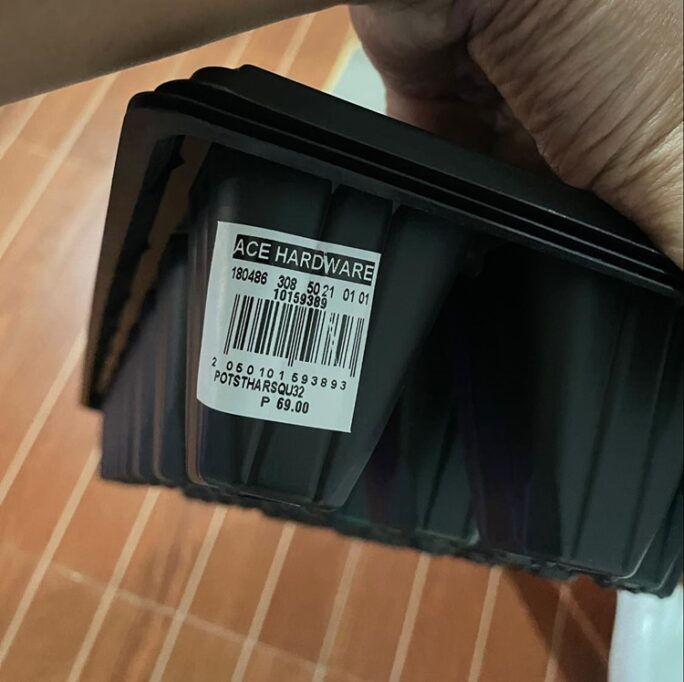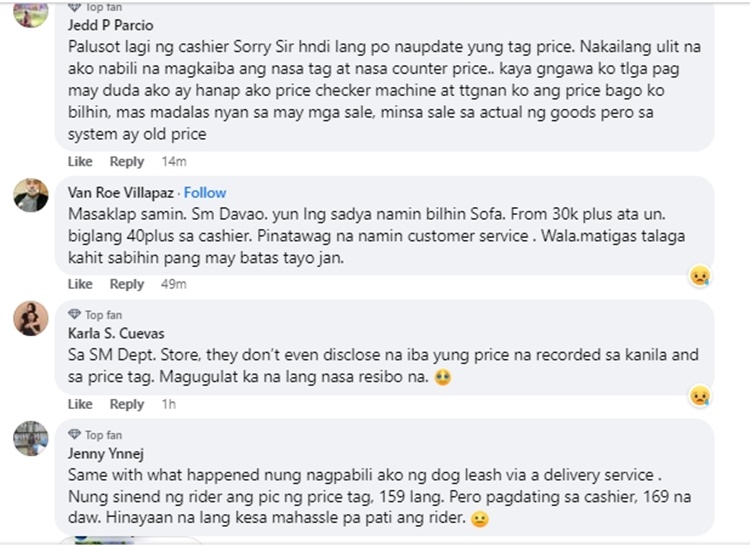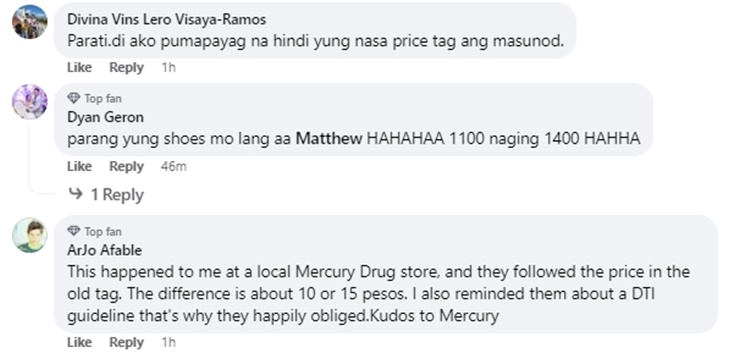Customer Shares Pricing Discrepancy Experience at Local Mall
A male customer reminds the public about consumer protection law especially when it comes to pricing discrepancies.
Dudz Buhisan, a Facebook user, recently shared his experience when he decided to make a purchase at a local mall. The post circulates on social media and earns reactions from the online community.
Last Sunday, September 10, 2023, Buhisan decided to make a purchase at a local mall. He took three seedling trays worth P69. As he proceeded to the cashier to complete his purchase, he was shocked when the cashier asked if it was okay for the price of the item to be increased to P79.

“This happened last Sunday (Sept 10). I was about to purchase this item then I was asked by the cashier kng ok lang ba daw na 79 na ang price,” Buhisan said.
Dudz was quick to question this sudden change in price, and he was informed that the price had been updated, but the new price was not reflected on the item’s tag. He had a strong hunch that this practice might not align with the consumer protection laws.
The male customer’s experience brings into focus an important piece of legislation, the Consumer Act of the Philippines, which is designed to safeguard the rights and interests of consumers.
Previously, a lady customer shares conversation with an ulam vendor’s daughter
This law, also known as Republic Act No. 7394, sets clear guidelines for businesses and retailers regarding pricing, quality, and consumer protection. It includes a price tag law, in which retailers are not allowed to change prices during the checkout process.
Here is the full post:
“Consumers, dapat alam niyo ito kasi nasa batas siya. Know your rights.
So kahapon I went to Ace Hardware to buy this seedling tray chenelyn. Naka indicate sa price is 69.00 (hmmm charot!) Anyway, so kumuha ako ng tatlo and when I arrived at the counter sabi ng cashier:
Cashier: Sir, Php 79.00 po pala ang updated price po ng item. Ok lang ba sa inyo po?
(Having the basic knowledge of the law that I cannot certainly remember, I politely replied)
.
Me: Ahh sorry Ms., you cannot change prices stipulated in the price tag here at the counter. Kung mali man yan, dapat ninyo pinalitan beforehand before putting it on the shelves. Nasa batas yan (To which she then replied)
Cashier: Ah ok sir. (gets niyang alam ko ang karapatan ko)
First, I think this is standard protocol of many establishments to ask consent from consumers about changes of prices on tags. While that is ok, the thing is, masyadong vulnerable ang consumers in this situation. Ayaw ng consumer ng hassle at mas importante na hindi mapahiya over something as trivial as 10 pesos. Which leads me to my second point…
…Bakit mo itatanong pa kay consumer kung alam mo na dapat ang sinusunod ay kung ano ang nasa price tag. Sa scenario na ito, parang na budol si consumer. And that is not ok.
According to Republic Act 7394, otherwise known as the Consumer Act of the Philippines, it is “unlawful to offer any consumer product for retail sale to the public without an appropriate price tag, label or marking publicly displayed to indicate the price of each article and said products shall not be sold at a price higher than that stated therein and without discrimination to all buyers.”
Malinaw po ito sa batas. So the next time na you encounter this kind of situation, insist on the price tag. You are on the right side of the law.”
The internet users expressed their reactions to the customer’s post:


Thank you for visiting Philippine Newspaper (Newspapers.ph). You may also follow us on the following social media platforms; Facebook page and YouTube channel
